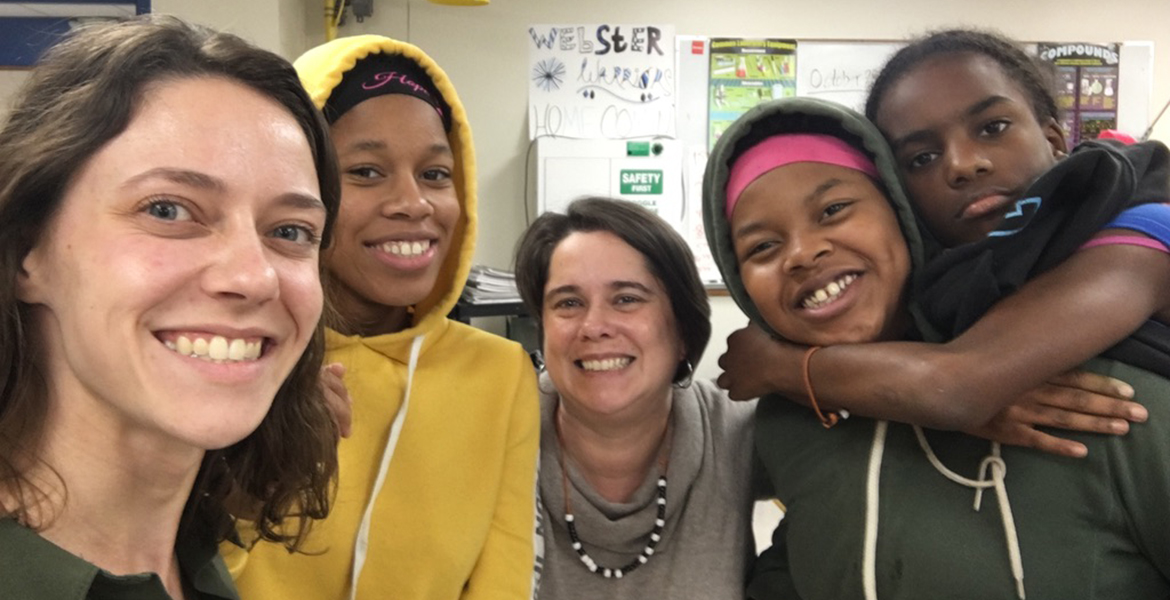
OSU med student, Schweitzer Fellow starts STEM program for girls
Tuesday, April 28, 2020
For Toni Nigro, a medical student at the OSU College of Osteopathic Medicine, becoming a doctor means more than just treating patients.
“In medical school curriculums, we don’t take a leadership 101 class, but as doctors we’re going out into the community and becoming community leaders. But how do you learn to become a community leader if you’re not mentored or shown,” said Nigro, who was one of two OSU-COM students who were chosen to take part in the Albert Schweitzer Fellowship program last spring.
Nigro and fellow OSU medical student Angela Clifton were two of 11 Tulsa-area graduate students selected for the Tulsa Chapter’s 2019-20 fellowship program. Tulsa is one of 13 chapters in the United States with Albert Schweitzer Fellowship programs that aim to develop graduates who will enter the workforce with the commitment and leadership skills needed to address unmet health needs for underserved populations.
Nigro chose to develop an afterschool STEM program specifically for girls at Daniel Webster Middle School and Monroe Demonstration Academy in Tulsa.
“I became interested in STEM outreach because middle school girls lose interest in STEM and don’t pursue it after about age 12, according to some studies. So, I decided that I could probably find middle schools here where there weren’t a lot of opportunities to learn about STEM careers and start an afterschool program,” she said.
Each fellow is asked to work at least 100 hours on the planning and development of their curriculum as well as gathering supplies and materials needed for their projects. They then are asked to spend at least 100 hours of direct interaction with the participants of their projects.
“My overall goal was not only to expose the students to STEM careers and just how cool science is, but bring in actual mentors from the community so they could meet these people who actually do this for a living, and I invited all female mentors to come in,” Nigro said. “I had paleontologists, women in computer science, architects, nurses, engineers, and medical students come in and work with the girls and do projects with them.”
Between both schools, about 22 middle school girls participated in the afterschool program that met twice a week. She tried to develop some kind of friendly competition each week that related to the mentor who was visiting.
“They learned how to build bridges and whoever’s bridge could carry the weight of the most pennies won. Or when the architect came, we had them build the sturdiest building and then simulated earthquakes,” Nigro said, and these projects introduced the middle school girls to careers they might have never thought of before.
“I like to think if they don’t know what they can be, they will never become that. Bringing in lots of female mentors brings in a new perspective. Also just being around other girls their age that are interested in the same things, I think it provided them a place to do something they enjoy with other women.”
Throughout the year-long fellowship, Nigro said she learned what it meant to be a leader, and that she enjoyed it more than she thought she would.
“I knew this was something I had to learn if I wanted to be the community leader I wanted to be. I’ve never been the point person for a project before, so I’d never been the person who made those kinds of decisions. I was really surprised how much I liked having that leadership capability,” she said.
"The Albert Schweitzer Fellowship provided me the opportunity to grow as a leader so someday I can go back to my community and identify needs that people are coming to me with and be able to work with them and find a solution."
Nigro said she hopes more OSU Center for Health Sciences students consider applying for the fellowship in the future.
“The fellowship really provides a place for you to find a project you’re passionate about in the community that’s outside medical school. It also provides a place to learn and collaborate with people from other fields,” she said. “I feel like the fellowship will make me a better physician in life, and I would recommend it to anyone.”
MEDIA CONTACT: Sara Plummer | Communications Coordinator | 918-561-1282 | sara.plummer@okstate.edu
